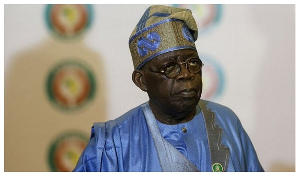Government’s decision to restructure Volta River Authority’s (VRA) debts has been well received by banks in the country which are hoping such arrangements will be made for other State-Owned Enterprises whose indebtedness have suffocated the operations of the financial institutions, the Bank of Ghana has said.
Additionally, banks are also craving for similar restructuring arrangement to be put in place to reduce their exposure to Bulk Oil Distribution Companies (BDCs) after they lent too much loans to the energy sector companies, most of which were poorly collateralised.
The Bank of Ghana in its latest Financial Stability Report released on Tuesday noted that the high debt levels of State-Owned Enterprises have affected the profitability and liquidity position of the banks, which have responded by tightening credit conditions to the private sector and state and quasi-state institutions in order to cut down on Non-Performing Loans (NPLs) and improve on the quality of assets.
The central bank noted: “The performance of the banking sector is expected to further improve following the restructuring of VRA debt and release of the first tranche of payment by the Ministry of Finance to banks in September 2016. As the debt repayment continues, expectations are that banks’ solvency will improve while non-performing loans reduce significantly on the back of reclassification of the VRA debt. The repayment of the VRA debt will also revamp performance of banks with high exposures to the energy sector related debts.”
Government owes the banks more than GHC2 billion as a result of letters of credit issued to state-owned energy companies for the purchase of crude oil. This makes banks exposure to the energy sector, the biggest in their portfolio.
The Finance Minister, Seth Terkper a couple of months ago explained that the restructuring of VRA’s debt is to protect the integrity of the banking system since the VRA is indebted to about 11 commercial banks to the tune of more than GHC4 billion – out of which the current debt restructuring agreement reached with the banks with the backing of government is aimed at resolving GHS2.2 billion of the total amount.
The Finance Minister indicated that the restructured debts will be serviced from collections from the energy sector levies with about GHC250 million to be paid to the banks as an upfront payment.
Another key feature of the debt restructuring arrangement made with the banks is a reduction on the interest rate on the cedi component of the VRA debt from 30 percent to 22 percent whereas interest on the foreign debt component was successfully negotiated from 11 percent to 8.5 percent.
Amidst the restructuring programme, however, the banks have moved to tighten credit to state enterprises with the composition of banks’ credit portfolio by economic institutions showing that the proportion of banks’ loans to government and public institutions decreased from five percent in July last year to 4.3 percent in July 2016.
“Credit to public enterprises accounted for 1.4 percent of gross loans and advances in July 2016, a decline from 2.4 percent in July 2015,” the Bank of Ghana further noted.
The hard stance on credit by the banks is intentioned to put brakes on the speed of loan defaults, with the central bank backing the banks to reduce their exposure to the energy sector in particular.
Currently, non-performing loans, which has jumped from 16.2 percent in March this year to 19.1 percent as at July, is the biggest risk banks face as many Ghanaian companies have seen their cash flows suffer and are finding it tough to repay their debts…causing non-performing loans to rise rapidly.
Business News of Thursday, 10 November 2016
Source: B&FT













